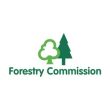Summary
Running from November 2021 to March 2025 as part of the Nature for Climate Fund, this project explored how farmers’ values may impact policy ambitions to increase tree cover on agricultural land in England.
Values can be understood as an expression of what matters to people or what they consider to be good and important in life. The project looked beyond financial considerations (which remain of crucial importance), to explore what other factors guide and shape farmers’ behaviour regarding trees, focusing primarily on where things matter to farmers for social, cultural, or moral reasons.
Understanding the range of values held by farmers in relation to trees allows us to learn how, when, and where farmers may embrace having trees on their land. Our premise is that this will better enable those working to design policies, incentives, tools, advice, or other communications to do so in ways which are more likely to succeed in delivering enduring tree cover expansion on farms.
The primary focus of the research was on trees outside woodland, including agroforestry, hedges, and in-field trees.
The project adopted a mixed-methods approach comprising two evidence reviews, semi-structured interviews with 47 farmers, two focus groups, a survey of 393 farmers, biographical research with eight farmers/farming families, and a process of co-designing research outputs for farm advisors.
Research Objectives
- Develop a framework of farmers’ social and cultural values, outlining how these values might influence farmers’ attitudes to trees.
- Identify priority contexts (demographic, geographic, farm systems) where an understanding of social and cultural values could impact efforts to expand tree cover on agricultural land.
- Consider how policy design and communication with farmers could best support the aim of increasing tree cover by more closely aligning with farmers’ values.
- Explore the interaction between farmers’ values and behaviour to provide insights into how behaviour might change over time.
Findings and Recommendations
In-depth findings and recommendations from the different elements of the project can be found in the outputs linked below:
- Farmer survey – In 2022, we completed a survey of farmers in England. The survey explored how important different values are to farmers, both in general and regarding expanding and enhancing tree cover.
- Dairy and cereal farmer focus – We have explored values in the context of dairy farming (research report and an ‘in brief’) and cereal farming (research report and an ‘in brief’).
- Farmer journeys to tree cover expansion – We have completed in-depth, biographical research with eight farmers from diverse backgrounds who have substantially increased tree cover on their farms. This work explores how values and behaviour change over time. We published four case studies in late 2023 and a further four case studies in 2025.
- Co-designing materials for farm advisors – Working with a panel of eight farm advisors from the Forestry Commission and Natural England, we produced a video (also embedded below) showcasing the farmer journeys research and an evidence guide summarising key project findings and suggesting ways advisors might approach conversations with farmers to explore their values more deeply.
- Final project report – A summary report published on Defra’s Science Search.
- Journal article – McConnachie, S. et al. (2025) ‘Growing trees on farms: Navigating the goals and values of farmers’, People and Nature. doi:10.1002/pan3.70167.
The following conclusions are drawn from the research as a whole:
- A wide range of things matter to farmers in relation to trees. Seven important themes are food production, farm business, farm health, environmental values, farming identity, social influence, and landscape relationship. Our values’ framework provides a tool to help navigate these values. You can find out more about the values’ framework in the final project report.
- Most farmers like trees and a majority are willing to grow trees, provided they fit with the other things they care about, such as food production, running the farm business, or soil or livestock health.
- Key spatial opportunities for growing trees on farms include field margins, unproductive land, or in hedges. Key opportunities specifically aligned with the value themes include where trees can positively contribute to livestock or soil health, to farmers’ environmental values (such as wildlife or custodianship), or to support the farm business.
- Values are messy and contextual. People may not fully understand their own values and may simultaneously hold conflicting values which they need to continually weigh up. Which values come to the fore is heavily influenced by context – e.g., a tree may be valued very differently depending on what type of tree it is, where on the farm it is, or even who someone is with. A local, personal approach to engaging with farmers can best ensure individual farmers’ values are considered to effectively identify opportunities for growing trees that fit with these values.
- Behaviour does not always reflect values. Farmers may not fully understand the impact of their practices or how their activities align with the things they value. Further, various reasons may constrain farmers’ ability to farm in ways that align with their values (e.g., finances, tenure, family influence).
- Evidence from the farmer journeys studies suggests that values typically change little over time. However, what seems to have changed among these farmers is either their understanding of their practice, or the circumstances in which they are farming. Several commonalities emerged which may trigger a change of behaviour: for example, specific events which change how farmers see their practice, the influence of other people, or exposure to other ways of operating.


